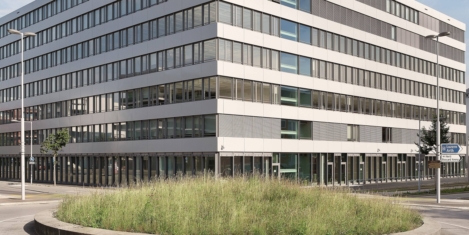December 13, 2018
Lack of understanding continues to compromise employee wellbeing
 Employee wellbeing is being compromised by a lack of understanding of how to implement effective programmes, claims research from the British Safety Council. According to the study, the main reasons for this situation are the difficulties of defining wellbeing, selecting the best tools for assessing programmes and measuring the cost-effectiveness of these interventions. Inadequate people skills of many line managers and low priority given by them to employee wellbeing are also important factors. Responding to these challenges, the British Safety Council has published the report Not just free fruit: wellbeing at work (registration required). More →
Employee wellbeing is being compromised by a lack of understanding of how to implement effective programmes, claims research from the British Safety Council. According to the study, the main reasons for this situation are the difficulties of defining wellbeing, selecting the best tools for assessing programmes and measuring the cost-effectiveness of these interventions. Inadequate people skills of many line managers and low priority given by them to employee wellbeing are also important factors. Responding to these challenges, the British Safety Council has published the report Not just free fruit: wellbeing at work (registration required). More →






 Technology is in the process of transforming almost every aspect of society, with change happening at an “accelerating rate,” and this is being made possible due of simultaneous rapid advances in several key areas of technology. This is according to a new White Paper on
Technology is in the process of transforming almost every aspect of society, with change happening at an “accelerating rate,” and this is being made possible due of simultaneous rapid advances in several key areas of technology. This is according to a new White Paper on 








 Fifty percent of UK employees feel their employers don’t understand them or their potential – higher than the European average of 46 percent according to a study of over 2,000 workers across the UK, France, Germany, Italy and the Netherlands from ADP. The research found that 40 percent of UK workers are unhappy with the quality of leadership, with only France reporting slightly higher figures, where 52 percent saying they feel misunderstood by their employer. This was followed closely by Italy (48 percent) and Germany (46 percent), while the Netherlands reported the most positive results with only a third stating such feelings (35 percent). However, UK and European employees are more likely to feel their direct reports understand them better, with 61 percent reporting that their managers know and support them, and want to see them succeed. This shows that those working more closely together enjoy better relationships, which in turn is likely to lead to better quality of work and greater productivity. The lesson for businesses is that close relations between all staff, regardless of seniority, matter.
Fifty percent of UK employees feel their employers don’t understand them or their potential – higher than the European average of 46 percent according to a study of over 2,000 workers across the UK, France, Germany, Italy and the Netherlands from ADP. The research found that 40 percent of UK workers are unhappy with the quality of leadership, with only France reporting slightly higher figures, where 52 percent saying they feel misunderstood by their employer. This was followed closely by Italy (48 percent) and Germany (46 percent), while the Netherlands reported the most positive results with only a third stating such feelings (35 percent). However, UK and European employees are more likely to feel their direct reports understand them better, with 61 percent reporting that their managers know and support them, and want to see them succeed. This shows that those working more closely together enjoy better relationships, which in turn is likely to lead to better quality of work and greater productivity. The lesson for businesses is that close relations between all staff, regardless of seniority, matter.

















December 13, 2018
Flexible working should not mean employers ask people to work all the time
by Oliver Shaw • Comment, Flexible working, Wellbeing
Talking about the role of technology within the flexible working arena is hardly ground-breaking. For decades, technological advancements have been hailed as pivotal to developments within the employment landscape. But this year, conversation appears to have reached another level. In an article for Open Access Government in June 2018, for instance, Richard Morris, UK CEO of International Workplace Group (IWG), explained the extent to which technology-driven shifts have caused significant social change. And in September, HR headlines homed in on a study by Capita and Citrix, which stressed that an inability to quickly introduce new IT services is restricting organisations’ flexibility proposition, and consequently their competitiveness.
More →